Criminal Law (Books and Journals)
26131 results for Criminal Law (Books and Journals)
-
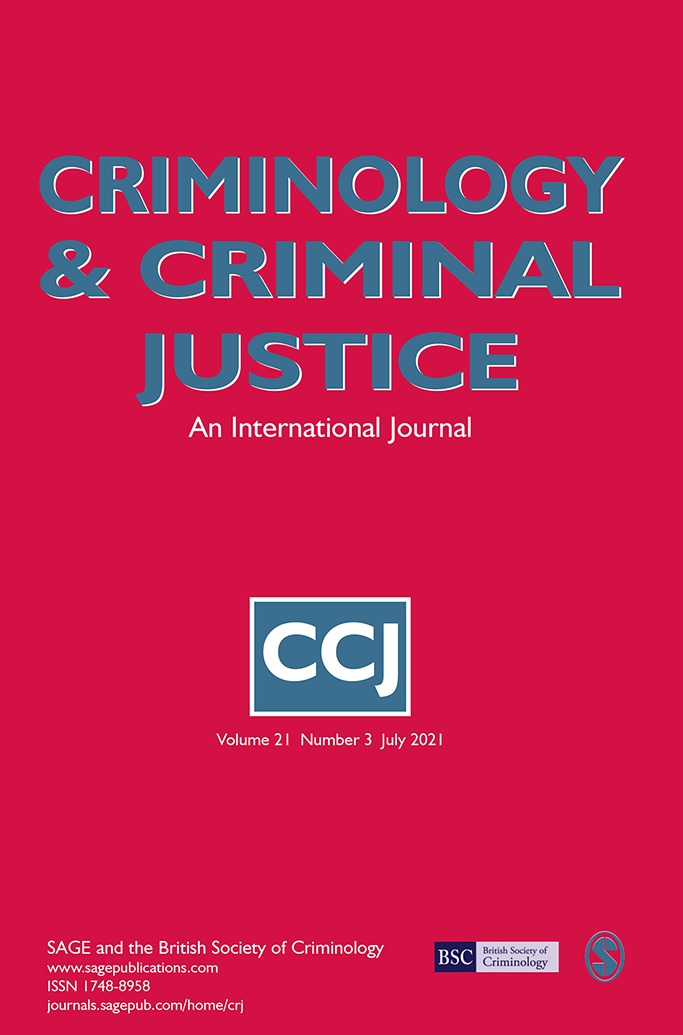 Criminology & Criminal Justice
From No. 1-1, February 2001
to No. 23-5, November 2023
Sage Publications, Inc., 2021
Criminology & Criminal Justice
From No. 1-1, February 2001
to No. 23-5, November 2023
Sage Publications, Inc., 2021
-
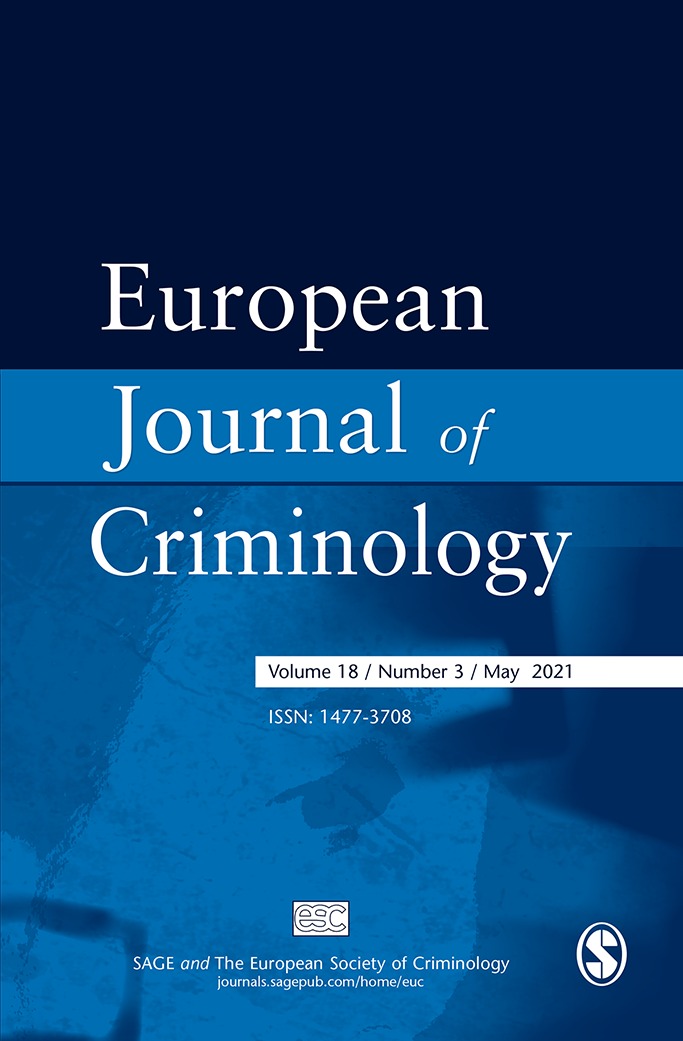 European Journal of Criminology
From No. 1-1, January 2004
to No. 20-6, November 2023
Sage Publications, Inc., 2021
European Journal of Criminology
From No. 1-1, January 2004
to No. 20-6, November 2023
Sage Publications, Inc., 2021
-
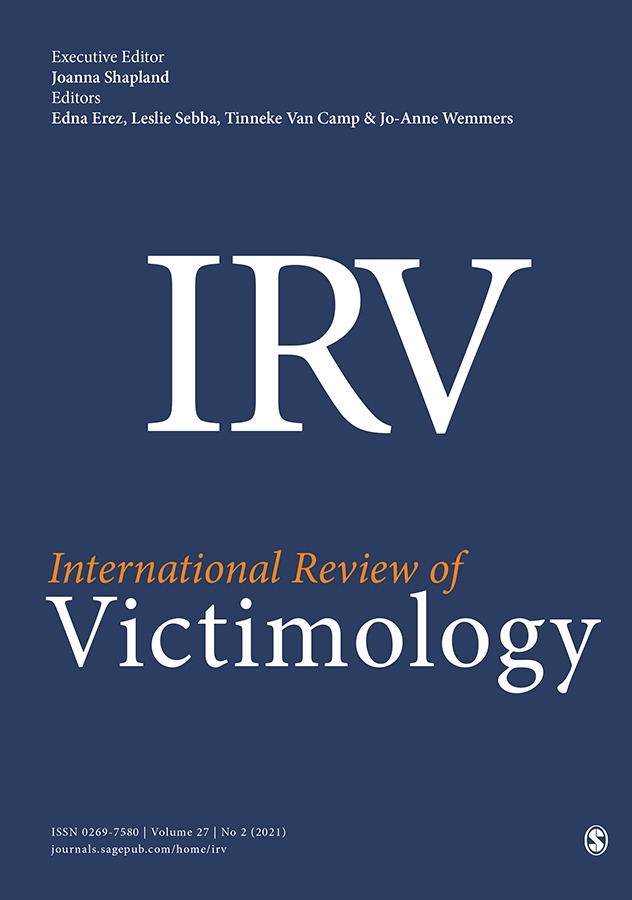 International Review of Victimology
From No. 1-1, September 1989
to No. 29-2, May 2023
Sage Publications, Inc., 2021
International Review of Victimology
From No. 1-1, September 1989
to No. 29-2, May 2023
Sage Publications, Inc., 2021
-
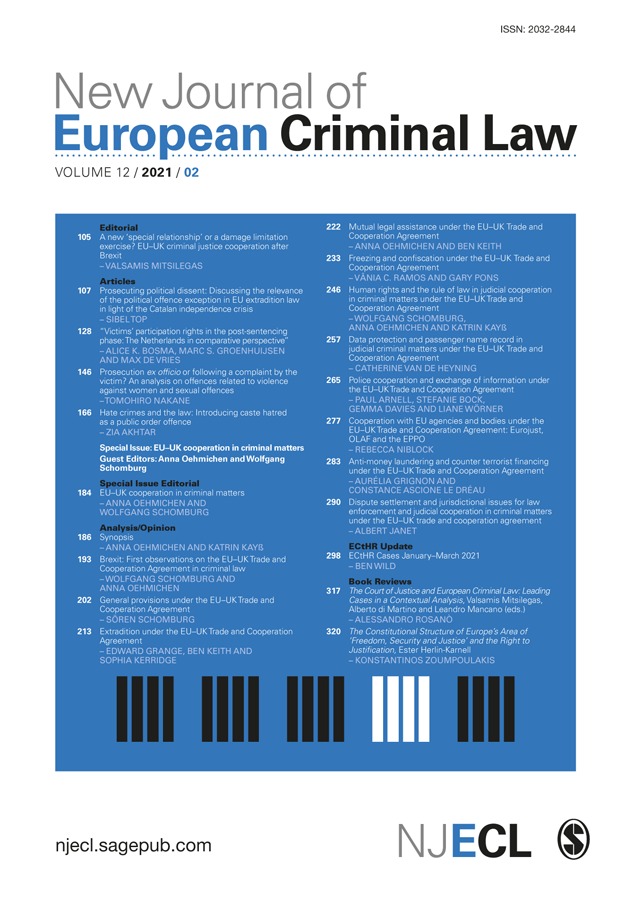 New Journal of European Criminal Law
From No. 1-1_suppl, June 2009
to No. 13-4, December 2022
Sage Publications, Inc., 2021
New Journal of European Criminal Law
From No. 1-1_suppl, June 2009
to No. 13-4, December 2022
Sage Publications, Inc., 2021
-
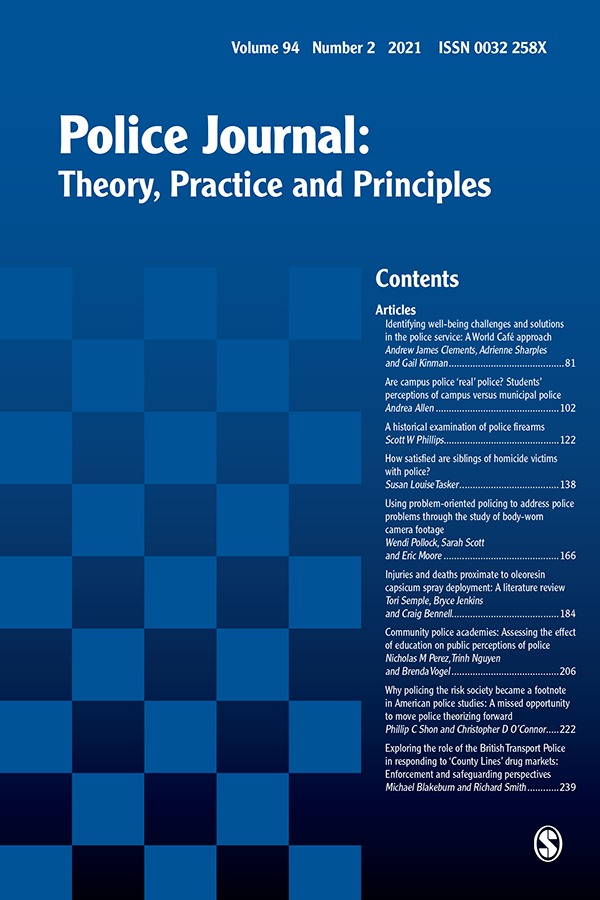 Police Journal: Theory, Practice and Principles
From No. 1-1, January 1928
to No. 96-1, March 2023
Sage Publications, Inc., 2021
Police Journal: Theory, Practice and Principles
From No. 1-1, January 1928
to No. 96-1, March 2023
Sage Publications, Inc., 2021
-
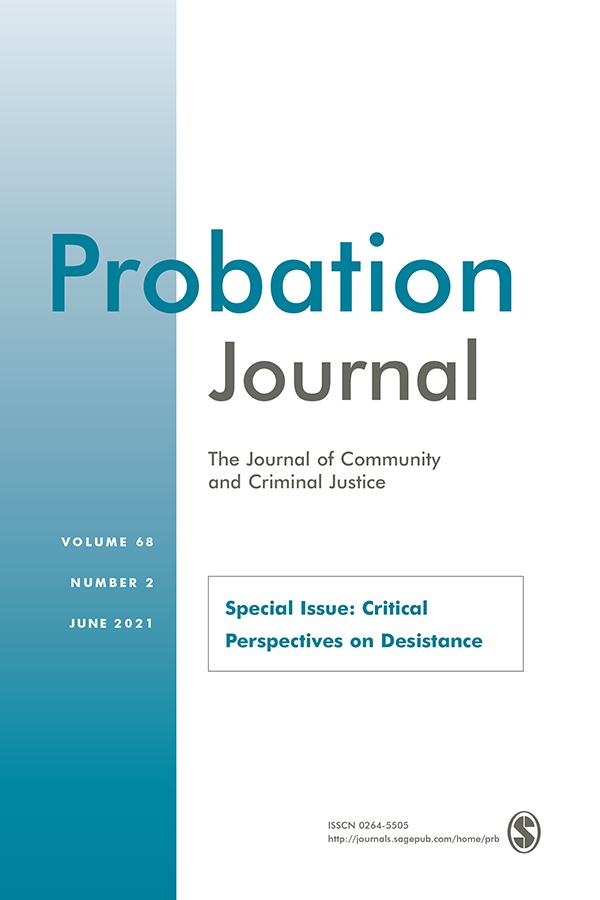 Probation Journal
From No. 1-1, July 1929
to No. 70-1, March 2023
Sage Publications, Inc., 2021
Probation Journal
From No. 1-1, July 1929
to No. 70-1, March 2023
Sage Publications, Inc., 2021
-
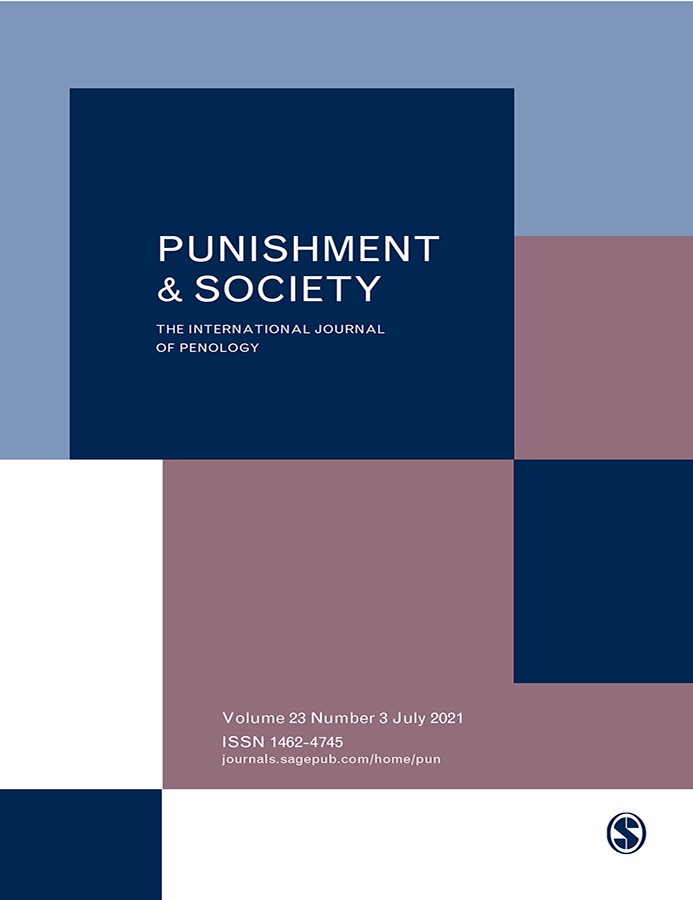 Punishment & Society
From No. 1-1, July 1999
to No. 25-2, April 2023
Sage Publications, Inc., 2021
Punishment & Society
From No. 1-1, July 1999
to No. 25-2, April 2023
Sage Publications, Inc., 2021
-
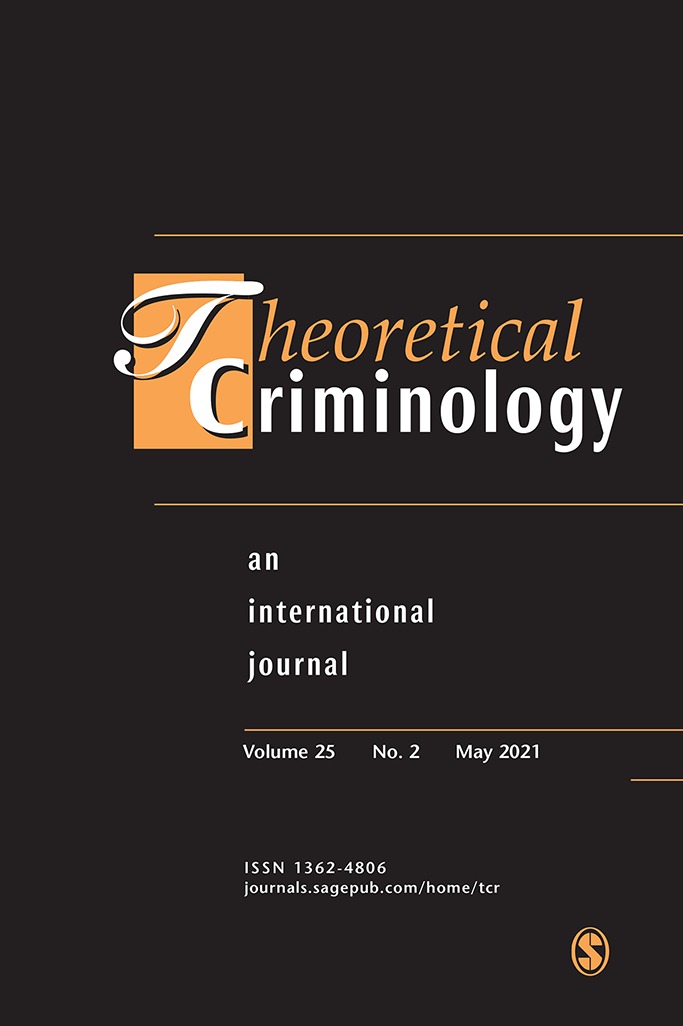 Theoretical Criminology
From No. 1-1, February 1997
to No. 27-2, May 2023
Sage Publications, Inc., 2021
Theoretical Criminology
From No. 1-1, February 1997
to No. 27-2, May 2023
Sage Publications, Inc., 2021
-
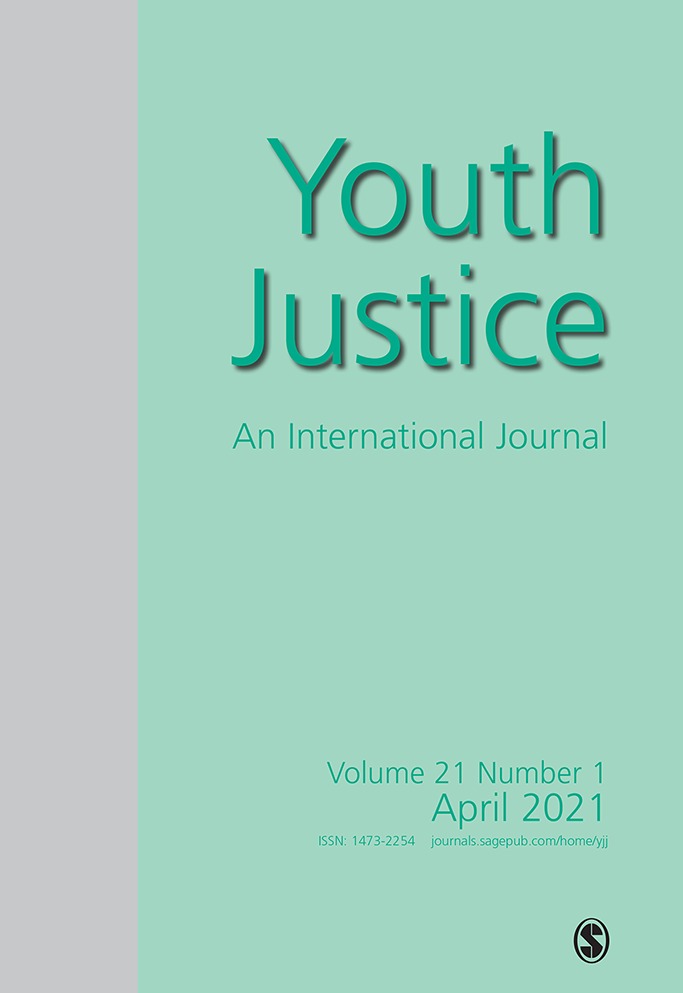 Youth Justice
From No. 1-1, April 2001
to No. 23-1, April 2023
Sage Publications, Inc., 2021
Youth Justice
From No. 1-1, April 2001
to No. 23-1, April 2023
Sage Publications, Inc., 2021
-
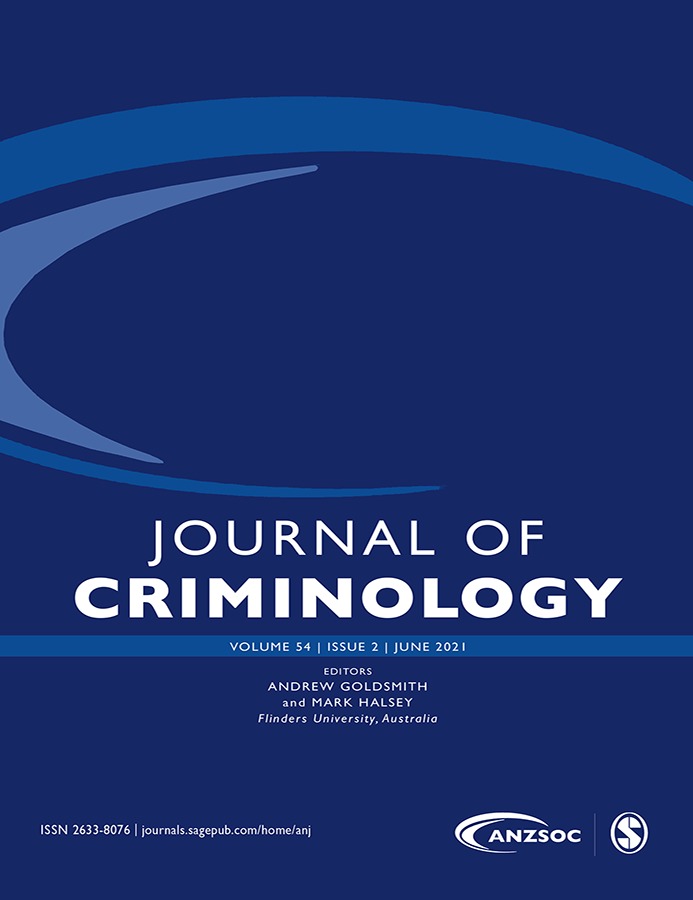 Journal of Criminology (formerly Australian and New Zealand Journal of Criminology)
From No. 1-1, March 1968
to No. 56-4, December 2023
Sage Publications, Inc., 2021
Journal of Criminology (formerly Australian and New Zealand Journal of Criminology)
From No. 1-1, March 1968
to No. 56-4, December 2023
Sage Publications, Inc., 2021
-
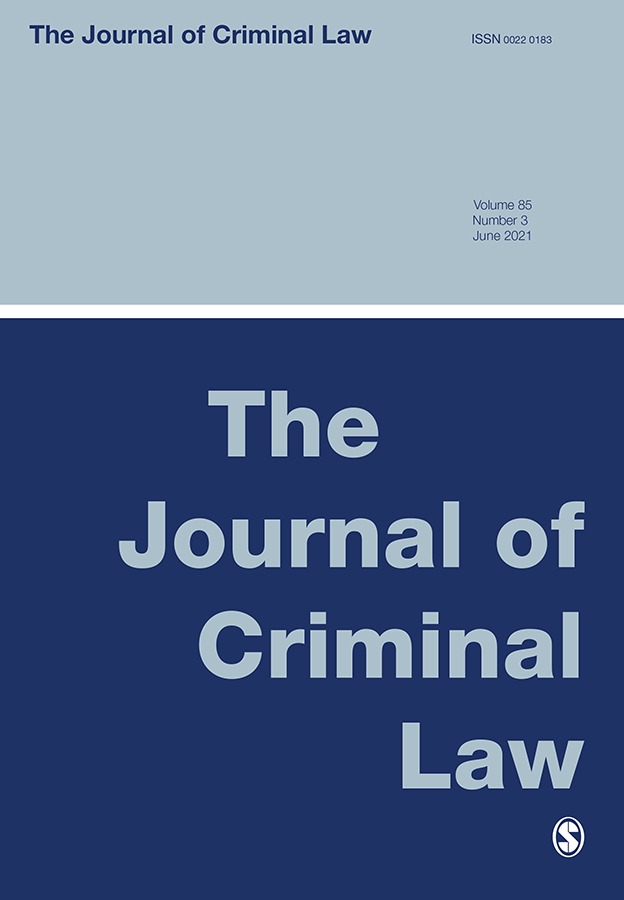 Journal of Criminal Law, The
From No. 1-1, January 1937
to No. 87-1, February 2023
Sage Publications, Inc., 2021
Journal of Criminal Law, The
From No. 1-1, January 1937
to No. 87-1, February 2023
Sage Publications, Inc., 2021
-
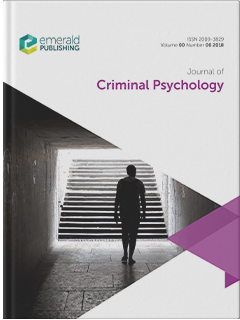 Journal of Criminal Psychology
From No. 1-1, June 2011
to No. 13-2, February 2023
Emerald Group Publishing Limited, 2021
Journal of Criminal Psychology
From No. 1-1, June 2011
to No. 13-2, February 2023
Emerald Group Publishing Limited, 2021
-
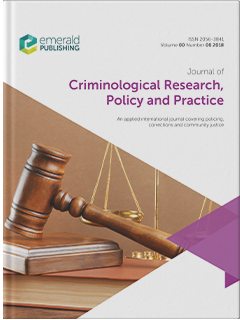 Journal of Criminological Research, Policy and Practice
From No. 1-1, March 2015
to No. 9-1, January 2023
Emerald Group Publishing Limited, 2021
Journal of Criminological Research, Policy and Practice
From No. 1-1, March 2015
to No. 9-1, January 2023
Emerald Group Publishing Limited, 2021
-
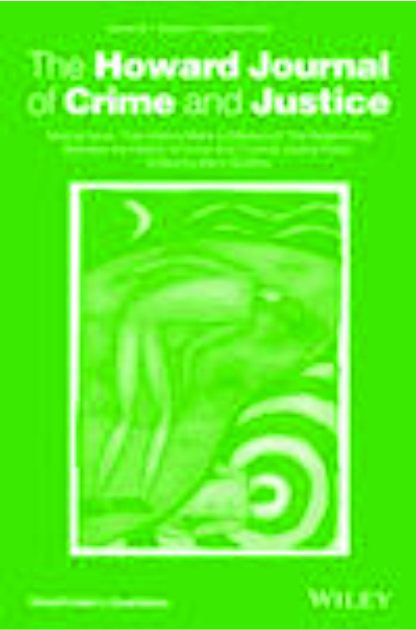 The Howard Journal of Crime and Justice
From No. 55-1-2, May 2016
to No. 59-4, December 2020
Wiley, 2021
The Howard Journal of Crime and Justice
From No. 55-1-2, May 2016
to No. 59-4, December 2020
Wiley, 2021
-
 Dundee Student Law Review
From No. I, January 2014
to No. V, January 2019
Dundee Student Law Review, 2020
Dundee Student Law Review
From No. I, January 2014
to No. V, January 2019
Dundee Student Law Review, 2020
-
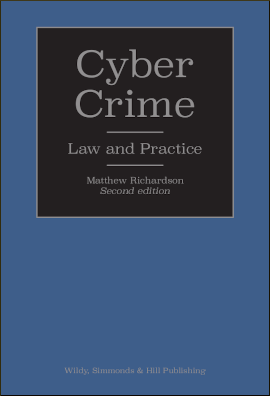 Cyber Crime - Law and Practice
by:
Wildy Simmonds & Hill, 2019
Cyber Crime - Law and Practice
by:
Wildy Simmonds & Hill, 2019
-
 The Firearms Law Handbook - 8th Edition
by:
Wildy Simmonds & Hill, 2019
The Firearms Law Handbook - 8th Edition
by:
Wildy Simmonds & Hill, 2019
-
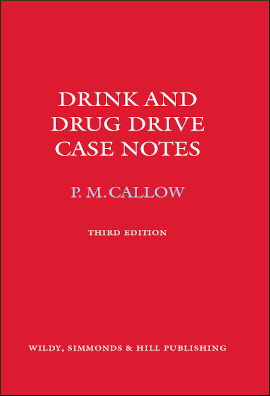 Drink and Drug Drive Case Notes
by:
Wildy Simmonds & Hill, 2015
Drink and Drug Drive Case Notes
by:
Wildy Simmonds & Hill, 2015
-
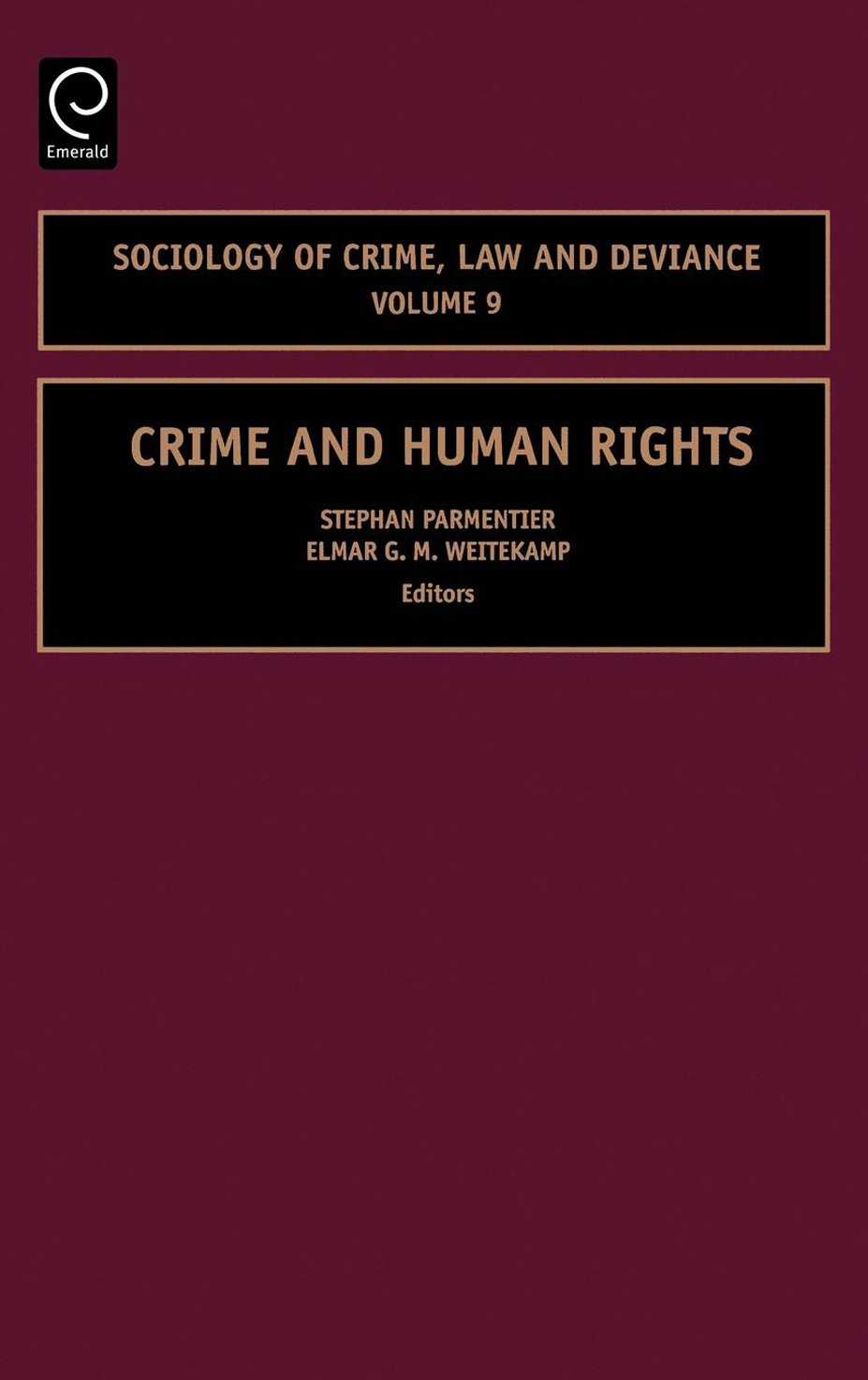 Crime and Human Rights
by:
Emerald Group Publishing Limited, 2007
Crime and Human Rights
by:
Emerald Group Publishing Limited, 2007
-
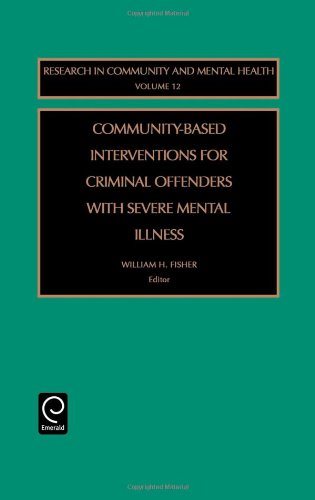 Community-Based Interventions for Criminal Offenders with Severe Mental Illness
by:
Emerald Group Publishing Limited, 2002
Community-Based Interventions for Criminal Offenders with Severe Mental Illness
by:
Emerald Group Publishing Limited, 2002
-
“The biggest thing you can rob is somebody's time”: Exploring how the carceral state bankrupts fathers through temporal debt
Over the last several decades, research has demonstrated the adverse impact incarceration has on sustaining and strengthening familial bonds. Physical and communication barriers are often noted as lead sources of strain in relationships between incarcerated individuals and their loved ones. Studies have shown that the financial burden of prison can also have deleterious impacts on the family...
-
“A prison is no place for a pandemic”: Canadian prisoners’ collective action in the time of COVID-19
Since the onset of COVID-19, social protest has expanded significantly. Little, however, has been written on prison-led and prison justice organizing in the wake of the pandemic—particularly in the Canadian context. This article is a case study of prisoner organizing in Canada throughout the first 18 months of COVID-19, which draws on qualitative interviews, media, and documentary analysis. We...
- Examining PM2.5 concentrations in counties with and without state-run correctional facilities in Texas
-
Nuances of fragmentation, (mis)recognition and closeness: Narratives of challenges and support during resettlement
The transition from prison to society tends to be tough and painful for people in resettlement and challenging to facilitate for professionals. The Norwegian Correctional Services aim for a continuous reentry focus throughout the prison sentence. Norway has been presented as one of the Nordic exceptional penal states, partly based on ‘the encouraging pattern of officer-inmate interactions’....
- Liam Martin, Halfway House: Prisoner Reentry and the Shadow of Carceral Care
-
Markers of entanglement: Survival strategies within the neoliberal university and the promise of carceral futures
Within the neoliberal era, the university's form and function have shifted. These shifts necessitate an unraveling of the synergies of institutions of higher education with carceral institutions. Building from the scholarship of the “college-prison nexus” and the “academic-prison symbiosis,” this paper converges on the criminology department's role within these synergies. Based on an analysis of...
- Franklin E Zimring, The Insidious Momentum of American Mass Incarceration
-
School truancy and welfare receipt dynamics in early adulthood: A longitudinal study
School truancy is associated with many negative life outcomes, including violent, property, and drug offending, lower levels of education, and subsequently lower status and lower-paying jobs. These negative life outcomes are also related to future reliance on government welfare payments. This research sought to identify how high school truancy affects young people's welfare receipt dynamics in...
-
From Referral to Treatment: Implementation Processes in Juvenile Drug Treatment Court Programs
Juvenile Drug Treatment Courts (JDTCs) provide a critical opportunity to identify and treat youth with substance use disorders (SUD). Structuring JTDCs to minimize process complexity and time to treatment is important. Results across eight JDTCs indicate the number of steps between referral and enrollment varied from 2 to 7, and the potential wait time varied from 1 to 58 days. The number of...
-
The benefits of a cyber-resilience posture on negative public reaction following data theft
Research shows that customers are insufficiently motivated to protect themselves from crimes that may derive from data theft within an organisation. Instead, the burden of security is placed upon the businesses that host their personal information. Companies that fail to sufficiently secure their customers’ information thus risk experiencing potentially ruinous reputational harm. There is a...
-
Temptations, Techniques and Typologies: Insights from a Western Australian Sample of Young People Who Burgle
A significant amount of property crime is committed by young people. In this novel qualitative study, 50 young people were interviewed to obtain an insight into their motivations to burgle. Decisions were based on peer pressure, opportunity and perceived need. Bennett and Wright’s typologies of adult burglars were applied to young burglars. Young burglars were more prone than adults in Bennett...
-
Identifying Aboriginal and Torres Strait Islander offenders and victims in judicial sentencing remarks
Judicial Sentencing Remarks (JSRs) have been utilised by several researchers, as a publicly available data source, to explore topics such as alcohol and other drug involvement in intimate partner homicide; the use of therapeutic jurisprudence; narratives of mitigation for Aboriginal offenders; and the identification and impact of trauma in the sentencing of homicide offenders (to name a few)....
-
Can Professional Interventions Contribute to an Escalation in Cases of Youth Violence? Considering the Impact of the Shift from Informal to Formal Youth Support on an Inner City Housing Estate
Youth violence is on the increase across many UK cities and although national trends, such as more networked entrepreneurial drug dealing, are contributing to the spread of such incidents, localised community environments play a significant role in the development of violent youth cultures. Based on a 4-year ethnographic study, this article explores how the shift from a resident led, relationship-
- Book Review: Convict criminology for the future by Ross, Jeffrey Ian & Vianello, Francesca (Eds.)Young men’s experiences of long-term imprisonment: Living life by Tynan, Rachel Rose
-
A follow-up evaluation of a coordinated police-social services response to recidivist family violence
Coordinated multi-agency approaches are a key strategy for responding to recidivist family violence. This paper presents a follow-up quantitative evaluation of Alexis: a coordinated police-social services approach to recidivist and high-risk family violence piloted in Victoria, Australia. State-wide police data was collected for 75 perpetrators 20 to 36 months since case closure following Alexis...
-
Insider threats among Dutch SMEs: Nature and extent of incidents, and cyber security measures
Insider threats represent a latent risk to all organisations, whether they are large companies or Small or Medium-sized Enterprises (SMEs). Insiders, the individuals with privileged access to the assets of organisations, can compromise their proper functioning and cause serious consequences that can be direct—such as financial—or indirect—such as reputational. Insider incidents can have a...
-
Debut crimes and chronic offenders in Queensland
We investigate whether the type of crime committed early in an individual's career has a bearing on patterns of subsequent offending (the so-called debut hypothesis) in an Australian setting. Police-recorded crime data from 2008 to 2020 were used and partitioned into cohorts based on the year of the first offence. We computed, for each cohort, the rate at which individuals progressed to...
- The Right to Participation in Youth Justice Research
-
Children as Covert Human Intelligence Sources: Spies First, Children Second
The Covert Human Intelligence Sources (Criminal Conduct) Act 2021 empowers the police, and other authorities, throughout the United Kingdom to use children as Covert Human Intelligence Sources (CHIS) and to authorise these children to engage in criminality, with no criminal liability, in return for information. In this article, we analyse the risk of severe physical and emotional harm that...
-
The Social Dynamics of Adolescent Co-offending
This paper explores the social dynamics of adolescent co-offending and decision-making processes among co-offenders; and to investigate co-offending roles in relation to the nature of a specific crime. The sample consisted of 15 young people who were purposively sampled from a group of 14- to 17-year-old males who had been identified as at risk of criminal group involvement and referred to a...
- Book Review: Beyond cages: animal law and criminal punishment by Marceau Justin
-
Identifying and understanding barriers to investigation of gender-based hate crimes: Perspectives from law enforcement in Ireland and the United Kingdom
This article is an exploratory study presenting empirically based analyses of gender-based hate crime policy and practice from the perspectives of law enforcement officials in Ireland and England and Wales, in the United Kingdom. Despite increasing awareness of victims of gender-based hate crimes, robust legislation and successful investigation and prosecution of these offences remain rare. By...
-
UK victim-survivor experiences of intimate partner spiritual abuse and religious coercive control and implications for practice
This study extends existing scholarship on coercive control within an intimate relationship by exploring how some perpetrators use spiritual abuse as part of their control repertoire and how others harness belief and doctrine to exercise a totalising ‘religious coercive control’ over their victims. The analysis in this article draws on two multi-faith datasets: secondary data analysis of 27 semi-s
-
“Would your level of disgust change?” Accounting for variant reactions to fatal violence against women on social media
The murders of Sarah Everard and Sabina Nessa, occurring in similar contexts in London over the course of 2021, prompted renewed public discourse around violence against women and the nature of stranger-perpetrated murder of women in British society. It also provided the opportunity to analyze our responses to such crimes as a community and, in particular, our expectations and assumptions about...
-
Body-worn cameras: An effective or cosmetic policing response to domestic and family violence?
Drawing together the literature on police body-worn cameras and video-recorded evidence in domestic and family violence matters, this article explores whether technology can ‘fix’ criminal justice responses to domestic and family violence. We argue that the use of police body-worn cameras and digitally recorded audio-visual evidence in domestic and family violence matters is not a cure-all for...
-
Assessing the predictive validity of a risk assessment instrument for repeat victimization in the Netherlands using prior police contacts
The current study examined to what extent a valid instrument that predicts repeat victimization can be based on a victim's prior police contacts. Police records between 2010 and 2017 were retrieved for a sample of 68,229 victims. The data was split into a training set (n = 34,224) and a test set (n = 34,005). Using logistic regression analyses in the training set, three models were developed...
-
Resocialization, gender and the Global South: A critical analysis of the concept through women's experiences in prisons in Peru
In this article, I critically assess the concept of resocialization through discussions with women in Santa Monica Prison, the largest women's prison in Peru in 2018 and with former women prisoners in 2021. Alongside the formal, institutional gendered and classed forms and ideas of resocialization imposed by the prison, the women themselves innovate and develop new, collective and individual...
-
‘Devastating, like it broke me’: Responding to image-based sexual abuse in Aotearoa New Zealand
The non-consensual taking or sharing of intimate images, also known as ‘image-based sexual abuse’, has become a widespread problem. While there has been growing attention to this phenomenon, little empirical research has investigated victim-survivor experiences. Drawing on interviews with 25 victim-survivors, this article focusses on the different responses to image-based sexual abuse in Aotearoa
-
The persistent countervailing consequences of urbanization: A longitudinal study of homicide rates
Quantitative criminologists often use temporally lagged variables to estimate the structural forces contributing to variation in crime rates. We elucidate the relevance of temporal lags for cross-national research by looking specifically at the lagged longitudinal relationship between urbanization and homicide rates. Using cross-national time-series data for (n = 83) nations, we run a series of
- Book Review: Women, Incarcerated: Narratives from India by Mahuya Bandyopadhyay and Rimple Mehta (eds)
